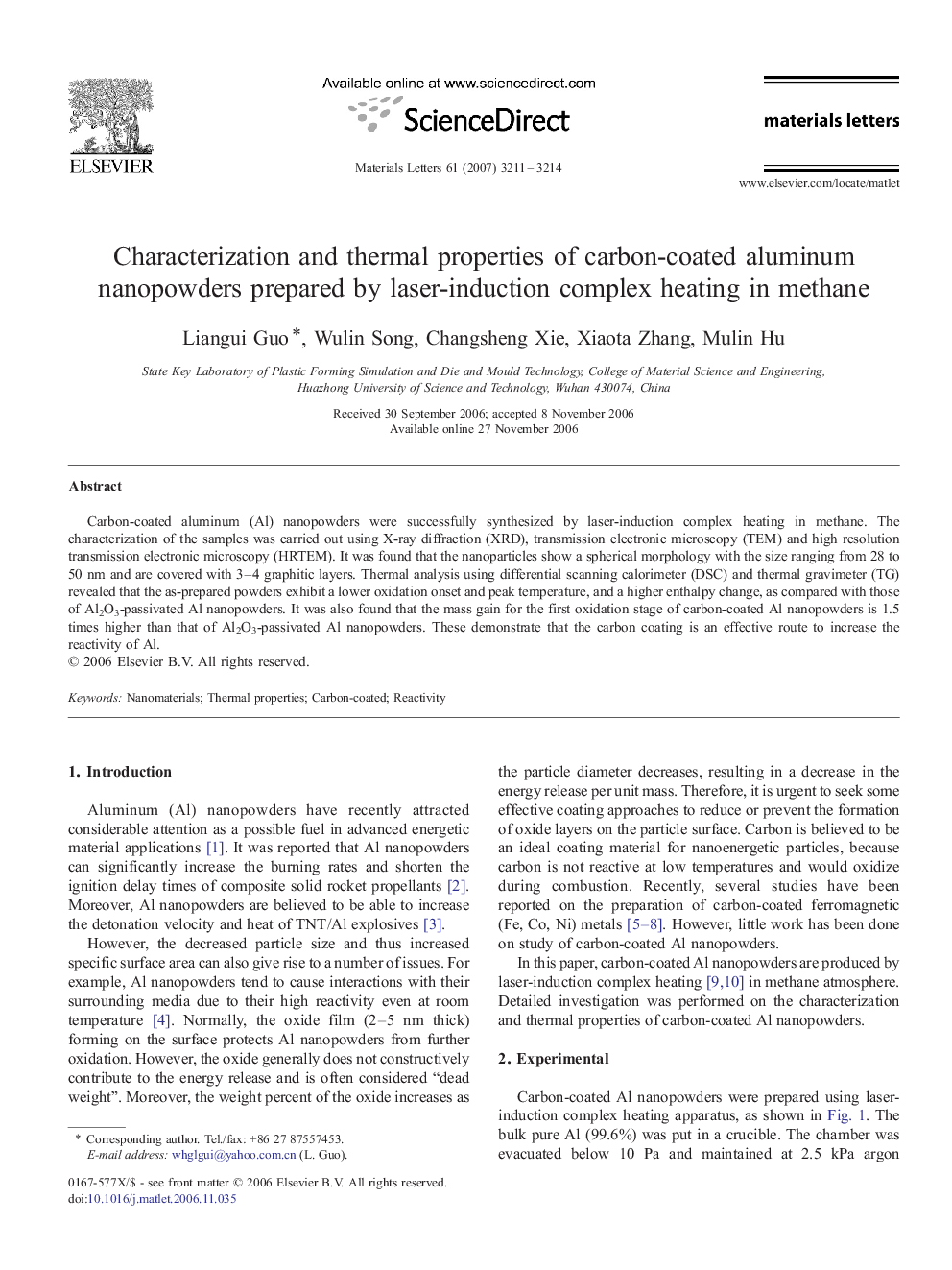| Article ID | Journal | Published Year | Pages | File Type |
|---|---|---|---|---|
| 1652478 | Materials Letters | 2007 | 4 Pages |
Carbon-coated aluminum (Al) nanopowders were successfully synthesized by laser-induction complex heating in methane. The characterization of the samples was carried out using X-ray diffraction (XRD), transmission electronic microscopy (TEM) and high resolution transmission electronic microscopy (HRTEM). It was found that the nanoparticles show a spherical morphology with the size ranging from 28 to 50 nm and are covered with 3–4 graphitic layers. Thermal analysis using differential scanning calorimeter (DSC) and thermal gravimeter (TG) revealed that the as-prepared powders exhibit a lower oxidation onset and peak temperature, and a higher enthalpy change, as compared with those of Al2O3-passivated Al nanopowders. It was also found that the mass gain for the first oxidation stage of carbon-coated Al nanopowders is 1.5 times higher than that of Al2O3-passivated Al nanopowders. These demonstrate that the carbon coating is an effective route to increase the reactivity of Al.
